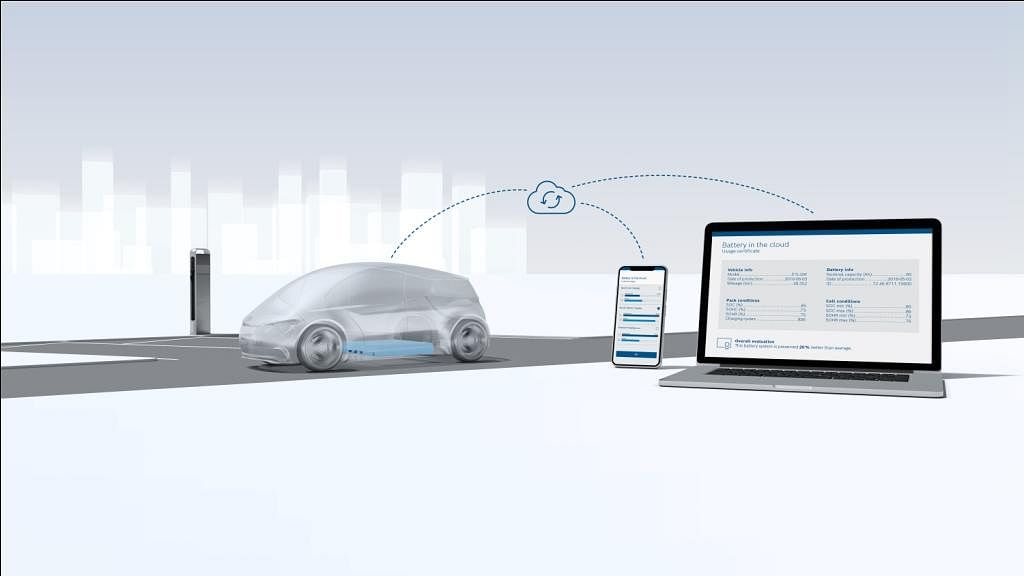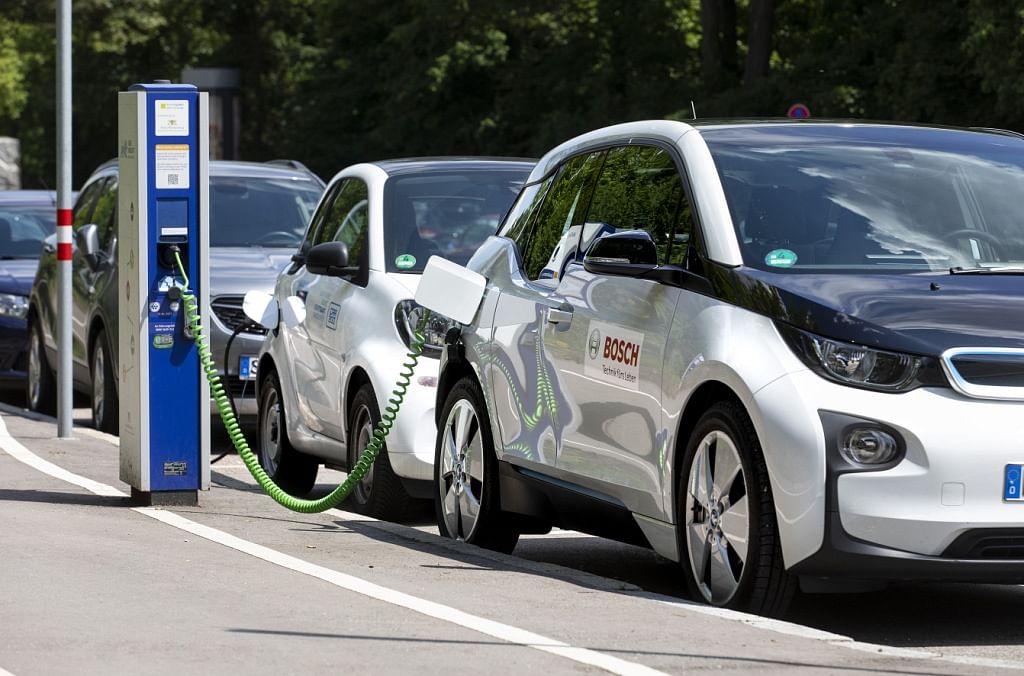China's DiDi becomes first to deploy Bosch's new tech to extend EV battery life
The cloud-based swarm intelligence technology helps batteries maintain performance for longer. Smart algorithms recognise battery stress factors and optimise the recharging process.
Stress makes cells age faster, something that geneticists have long since demonstrated for the human body is also true for electric-vehicle battery cells, says German technology major Bosch. The older the batteries get, the lower their performance and capacity, and the shorter the range of the vehicle. To help batteries last longer, Bosch says it is developing new cloud services that supplement the individual vehicles’ battery-management systems.
Dr. Markus Heyn, member of the board of management of Robert Bosch, said: “Bosch is connecting electric-vehicle batteries with the cloud. Its data-based services mean we can substantially improve batteries’ performance and extend their service life.”
The technology will see smart software functions in the cloud continually analyse the battery status and take appropriate action to prevent or slow down cell aging. These measures the company says can help reduce the wear and tear on the battery, the most expensive component of an EV, by as much as 20 percent.
Utilising the real-time data gathered from the vehicle and its surroundings plays a key role here. The cloud services using the data optimises every single recharging process and provide drivers with tailored driving tips on how to conserve battery power via the dash display. Bosch calls the new service 'Battery in the Cloud', and has revealed its first customer to deploy it is DiDi, China’s leading provider of mobility services.

Real-time analysis always
According to experts, the average service life of today’s lithium-ion batteries is around eight to 10 years or between 500 and 1,000 charge cycles. The battery makers usually guarantee mileage of between 100,000 and 160,000 kilometres, but rapid battery charging, high numbers of charge cycles, an overly sporty driving style, and extremely high or low ambient temperatures are all sources of stress for batteries, which makes them age faster.
Bosch’s cloud-based services are designed to recognise – and counter – these stress triggers. All battery-relevant data – for instance current ambient temperature and charging habits – is first transmitted in real time to the cloud, where machine-learning algorithms evaluate the data. With these services, Bosch says it is not only offering a window into the battery’s current status at all times, but enabling a reliable forecast of a battery’s remaining service life and performance to be made for the first time.
Previously, it was not possible to make any accurate forecast of how quickly an electric-vehicle battery would wear out. “Powerful batteries with long services lives will make electro-mobility more viable,” said Heyn.
Another feature of the smart software functions is their use of the swarm principle: the algorithms used for analysis evaluate data gathered from an entire fleet, not just from individual vehicles. The company says swarm intelligence is the key to identifying more of the stress factors for vehicle batteries, and to identifying them more quickly.

Protecting cells against aging
Bosch says the new insights gained into a battery’s current status enables it to also actively protect the batteries against aging. To give one example: fully-charged batteries age more quickly at particularly high or low ambient temperatures. Bosch’s cloud services thus ensure that batteries are not charged to 100 percent when conditions are too hot or too cold. By reducing the battery charge by only a few percentage points, the battery is protected against inadvertent wear and tear.
Data in the cloud will also help improve battery maintenance and repair, as soon as a battery fault or defect is identified, for example, the driver or fleet operator can be notified. This the company says increases the chances that a battery can be repaired before it becomes irrevocably damaged or stops working altogether. Finally, the cloud services also optimise the recharging process itself. The recharging process – which, by the way, is one of the biggest obstacles to creating a mass market for electro-mobility – harbours the danger that the battery cells permanently lose some of their performance and capacity. Smart software in the cloud can calculate an individual charge curve for each recharging process, regardless of whether it takes place at home or elsewhere. This helps the battery recharge to the optimum level, helping conserve the cells. On the other hand, existing apps with charge timers merely allow drivers to time the recharging process so that it is carried out when demand for electricity is low, the Bosch solution goes much further, offering a specially developed recharging process as part of the company’s new battery services.
They optimise both fast and slow charging and control electricity and voltage levels during the recharging process, thus prolonging battery life.
Q&A
What is the difference between Bosch cloud services and conventional battery-management systems?
The battery-management systems currently integrated in electric vehicles monitor and manage the battery cells, and ensure both reliable operations and uniform recharging of the battery cells. But a battery’s performance and service life depend on numerous factors, such as the frequency with which it is recharged and discharged, the type of recharging process used, the driving style, and external factors such as the ambient temperature. That is why Bosch has developed cloud services that supplement the conventional battery-management systems installed in electric vehicles.
Why is Bosch developing its own recharging strategies?
Up to now, different recharging processes have been programmed into electric vehicles. Going forward, Bosch will offer automakers innovative recharging strategies that complement the processes available. When, for example, drivers want to recharge their batteries faster, a rapid recharge process automatically shortens the time required without damaging the battery. Another strategy optimises the more leisurely standard recharging process, which can take several hours. The Bosch process is especially gentle on the battery, enhancing both its capacity and service life.
RELATED ARTICLES
Autoliv Plans JV for Advanced Safety Electronics With China’s HSAE
The new joint venture, which is to be located strategically near Shanghai and close to several existing Autoliv sites in...
JLR to Restart Production Over a Month After September Hacking
Manufacturing operations at the Tata Group-owned British luxury car and SUV manufacturer were shut down following a cybe...
BYD UK Sales Jump 880% in September to 11,271 units
Sales record sets the UK apart as the largest international market for BYD outside of China for the first time. The Seal...






 By Autocar Professional Bureau
By Autocar Professional Bureau
 09 Jul 2019
09 Jul 2019
 9001 Views
9001 Views












 Ajit Dalvi
Ajit Dalvi




